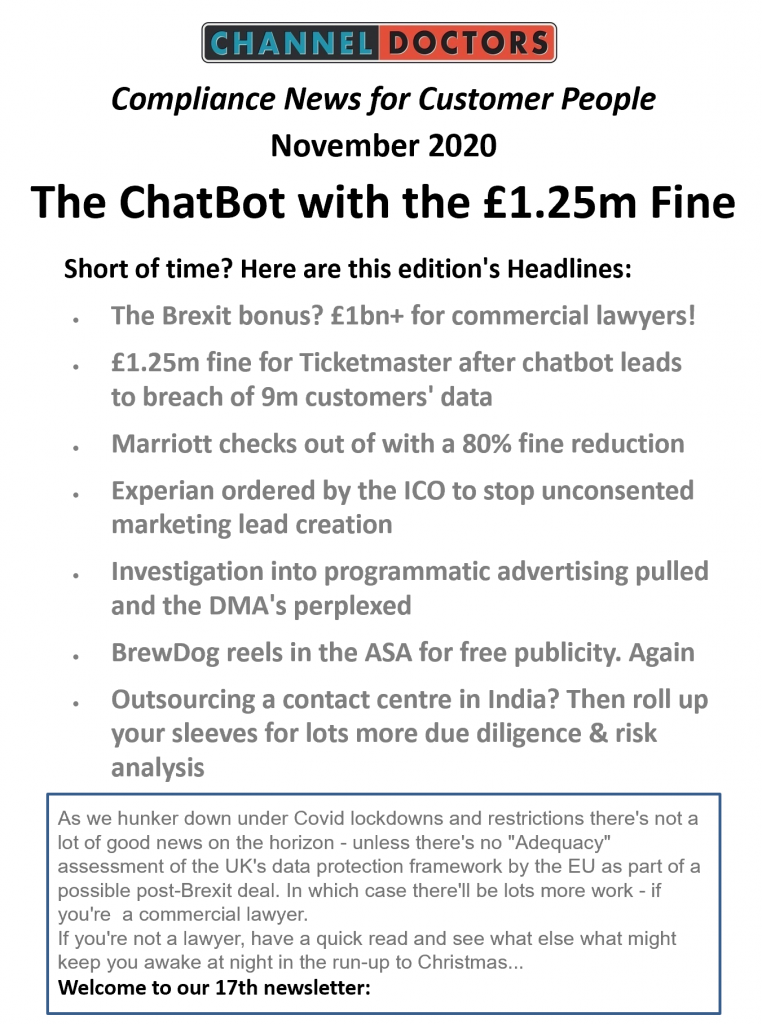Brexit – The Data Dilemma
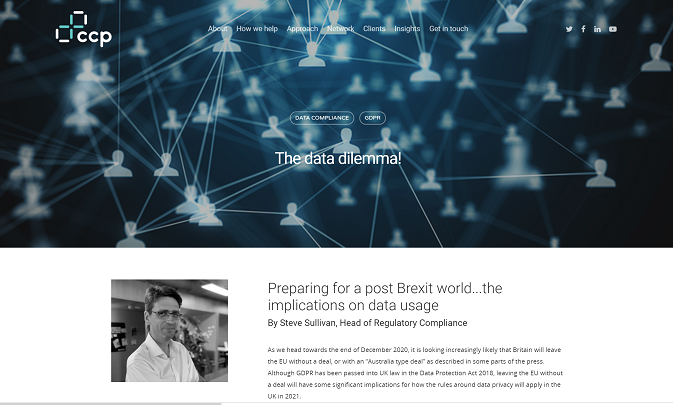
Our lovely friends at the Contact Centre Panel have published this article about the data privacy compliance implications of a no deal Brexit, post transition.
Only 2 shopping days till Covid Christmas – and maybe 8 days to get the lawyers in before 2021…
The bot what done it?
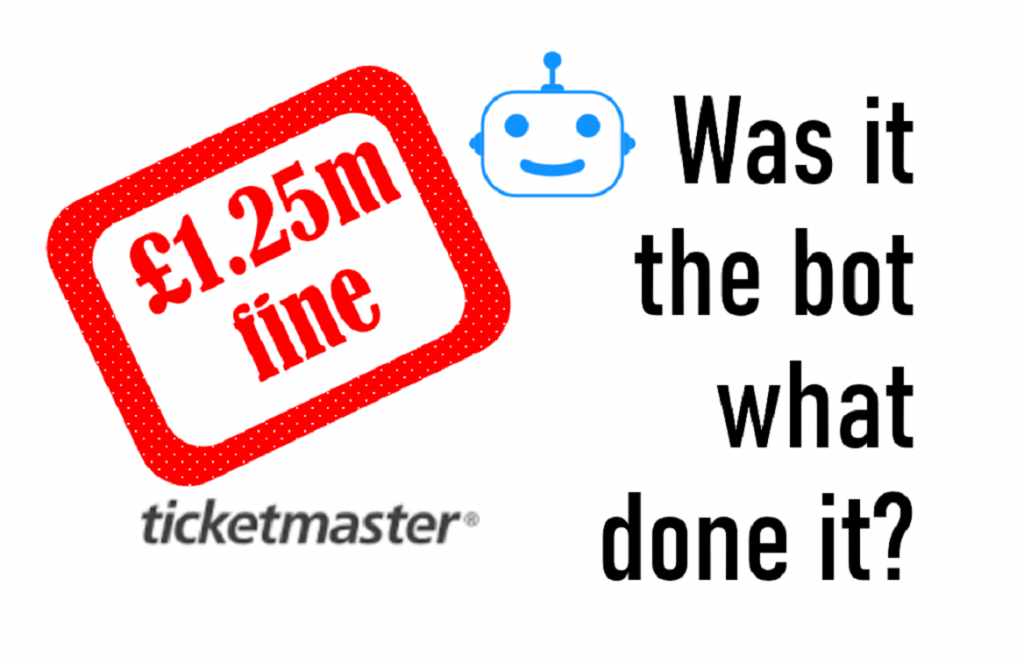
Chatbots are experiencing a rapid growth in take up and adoption. From acting as a simple but effective triage for initial contact handling through to demonstrating real machine learning capabilities, bots are starting to make life easier for consumers and brands alike.
But what about a chatbot that results in a big brand breaking data protection rules and getting a £1.25m fine from the Information Commissioner’s Office (ICO)?
Well, that’s not quite the story, but it seems to be what Ticketmaster tried to tell the ICO after its breach of customer and payment card data which resulted in the fine. The details are hidden away, rather obliquely, in the ICO’s Penalty Notice . It’s clear that the vulnerability that fraudsters exploited to access payment card details (initially highlighted by Monzo – perhaps showing the superiority of #fintech systems and data analytics) was created by Ticketmaster’s use of a Inbenta chatbot. However, it’s also clear that Inbenta specifically warned against using the bot on payment pages of the website for just that reason. The bot wasn’t really to blame, Ticketmaster’s internal risk management regimes and mindset was.
Given Ticketmaster’s business, it’s a safe bet that a lot of their routine customer contacts are to do with checkout and payments, so what better place to put a chatbot? One of the beauties of chatbots, like so many SaaS products, is that you can just paste the code on a page to get started. If you have access to your website then you don’t need to jump through your IT colleagues’ tedious permission hoops and rules.
Is that what happened in the Ticketmaster case? I don’t know, but I do know that misunderstandings and miscommunications resulted in a 7-figure fine, thousands of unhappy customers, a failed chatbot implementation and considerable reputational damage for Ticketmaster.
How do you avoid Ticketmaster’s fate befalling you?
Well, it’s the usual simple-sounding, but difficult to achieve need to get all your teams (internal & external) – technology, marketing, digital, risk, tech vendors – aligned and cooperating, with a shared understanding of business benefits and risks. Only then can you balance doing the smart thing for your business and customers without exposing both to fraudsters and rule breaking.
Inadequacy = £1.6bn to commercial lawyers
It’s the end of the week and – yet again – a last minute post-transition Brexit trade deal is in the balance. This is no time for predictions, but here’s why it’s in everyone’s interests to secure a deal that includes an EU adequacy ruling on UK data protection rules.
According to a report from New Economics Foundation and UCL European Institute ‘The Cost of Inadequacy’ if the UK’s rules aren’t considered adequate by the EU then a raft of new contractual arrangements using standard contractual clauses (SCCs) will be required.
“The aggregate cost to UK firms would likely be between £1 billion and £1.6 billion.”
Most of which would be be spent on commercial lawyers.
And no-one wants that.
So who’s that shiny new app for? You or your customers?

90% of apps are deleted within a year by the consumers who download them.
That sobering statistic from the Centre for Retail Research is contained in White Label Loyalty‘s white paper ‘Clicks to Bricks’. The appeal to brands – especially in retail – of having the behavioural insight and direct access to be gained from customers using their app is obvious. But creating and maintaining a decent app is still a very expensive undertaking – and if the vast majority of those customers don’t see the value in using it then it’s a pointless one.
You might think you need an app, but do your customers too
Indian outsourcing: Fewer regulations = more due diligence and risk for clients
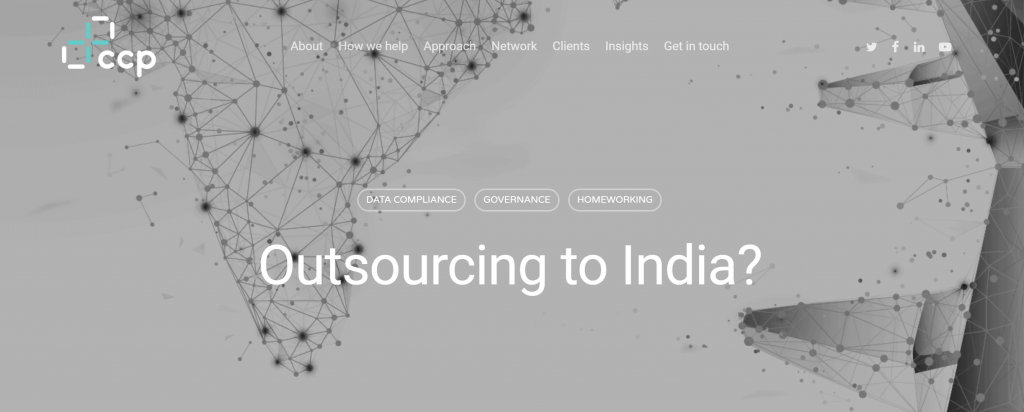
Many thanks to our friends at Contact Centre Panel for sharing my thoughts on the recent loosening of regulations on Indian contact centres to support home working.
This is a sensible move by the Indian government to aid its BPO sector through Covid and beyond, but it will create an additional due diligence and supplier management burden on outsourcing clients.
Spam, spam, spam!
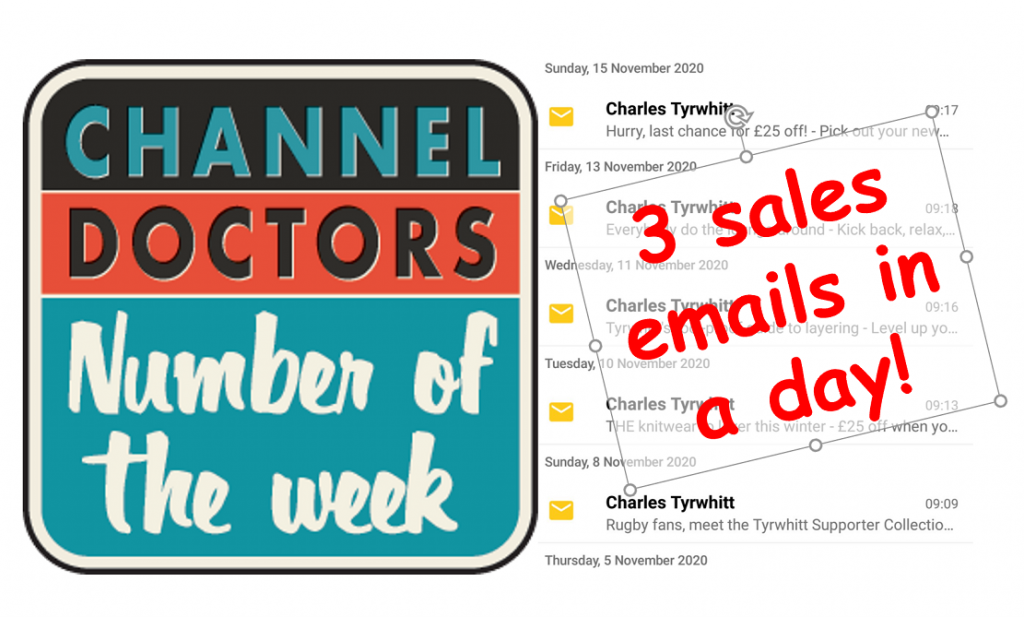
I’m very grateful to Gary Hancock for this week’s incredible number. Debonair and always well turned out, Gary has been receiving an avalanche of marketing emails from Charles Tyrwhitt – peaking at 3 in one day!
What could possibly be going on here? Presumably Tyrwhitt know something about #marketing and must be aware that anyone’s definition of spam kicks in when emails arrive with the frequency of meals.
Just possibly, in these most challenging times for a firm like Tyrwhitt, they are being rational. Perhaps they have found that potential customers of Gary’s profile respond to being swamped with marketing messages and will eventually make a purchase. if sufficiently inundated.
So, assuming that was the case, and you were in charge of Tyrwhitt’s marketing, what would YOU do?
Would you send the scores of emails and trash your brand, but gain the revenue?
#emailmarketing#cx#brandidentity
It’s functionality, stupid!
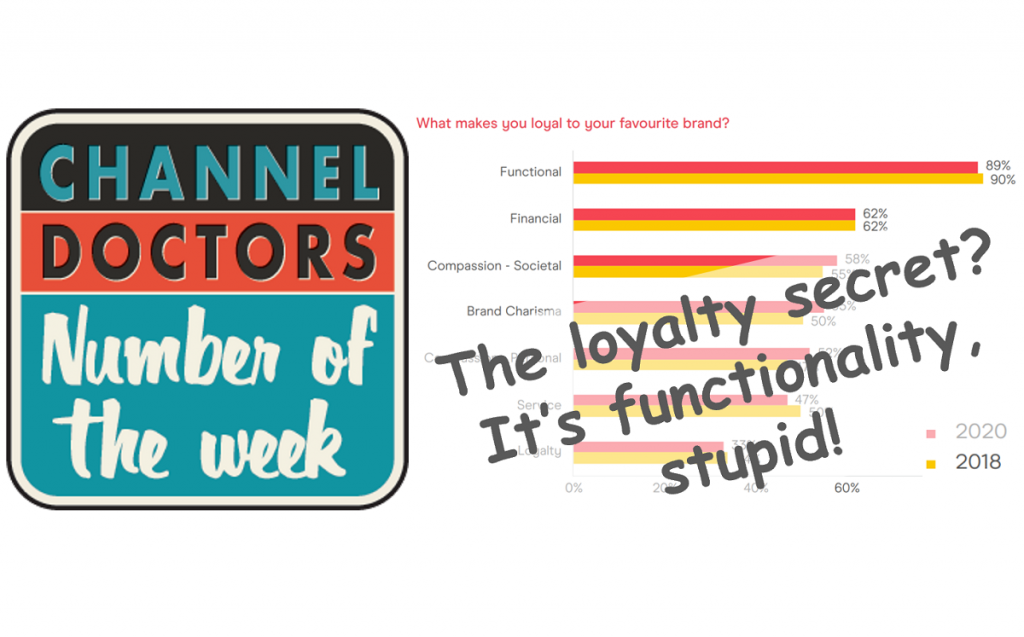
Reality check time, marketers and those at the more emotional end of the customer experience spectrum.
New research shows that Functionality is still by far the most important driver of customer loyalty.
Societal Compassion, Brand Charisma, Personal Compassion and Service are all important to consumers, increasingly so in the Covid era. However, the component parts of Functionality:
– Quality
– Ease of Use
– Reliability
– Convenience
closely followed by Price, are supreme. So, getting your product and service basics right is the key to increasing loyalty.
Simple sounding, but hard to achieve!
This is just one of many interesting statistics in the latest edition of “Customer Engagement: How to Win Trust and Loyalty” from DMA UK,Collinson and dotdigital.
Culture’s still eating strategy for breakfast

It’s 20 years since Peter Drucker famously said (or maybe didn’t say – you’re welcome to explore that particular Google wormhole yourself!) “Culture eats strategy for breakfast”. And it seems that it’s still true.
McKinsey & Company‘s recent ‘The human touch at the center of customer-experience excellence‘ paper is devoted to explaining the importance of human- and employee-focused measures to underpin and empower customer experience excellence. In the realm of person-to-person interaction we never lose sight of the fact that brands are reliant on their frontline people to deliver the right experience. McKinsey’s findings bring the importance of great culture to life – especially when you are embarking on a transformation journey.
They have found that “Organizations that tackle the people-related activities to reinforce culture properly increase their odds of a successful transformation by between 30 and 79 percent.”


